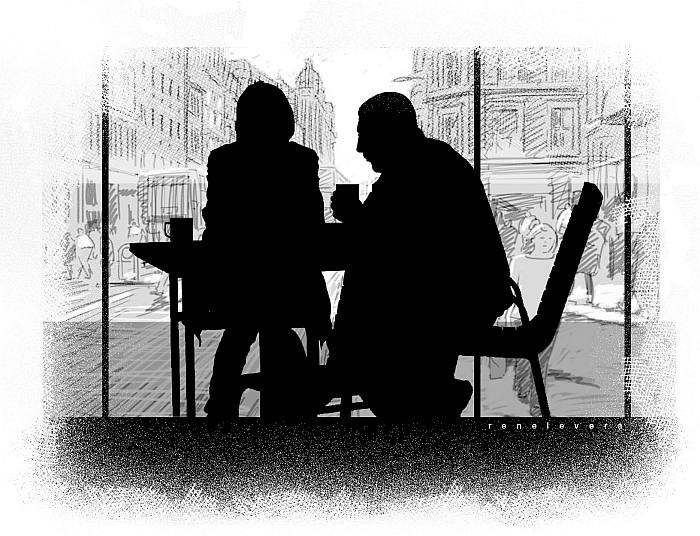
Thank God for corners. If this coffee shop were oval, at a busy time, people would tend to get in the way of each other, because movement strays from the center and follows a straight line. Or else those who knew us—and this is a small town—would turn our way for small talk, the smaller, the more endless.
Hence in this angular café, the wife and I, cappuccino in hand, chose a corner, for no reason other than peace, in which alone a cup has meaning.
We sought silence, which we had a better chance of finding in a corner, in an elbow of the stream unhurried by the current, where we could just sit and think. This way, our souls, left behind in the day’s rush, could catch up with us.
Soren Kierkegaard writes of the need for silence, finding in it the power to heal the ailment which afflicts the world: “The present state of the world and the whole of life is diseased. If I were a doctor and I were asked for my advice, I should reply: ‘Create silence! Bring people to silence!’ The Word of God cannot be heard in the noisy world of today. And even if it were trumpeted forth with all the panoply of noise so that it could be heard in the midst of all the other noise, then it would no longer be the Word of God. Therefore, create silence!”
The same considerations must have prompted Jesus to tell his disciples to seek a quiet place where they could be alone. He saw how busy they were, how the people were coming and going in great numbers giving them no time even to eat.
Mark writes that, when they were with Jesus and reported all they had done and taught, Jesus said to them, “Come away by yourselves to a deserted place and rest a while.”
This they did. They took off in a boat for somewhere secluded. Unfortunately, the people saw them leaving, reckoned where they were moving towards, and rushed to the place ahead of them. Mark tells us that, when Jesus disembarked and saw the vast crowd, “his heart was moved with pity for them, for they were like sheep without a shepherd; and he began to teach them many things.”
If often happens that in my desire for quiet something urgent intervenes—a distress call, for instance—which obviously must first be attended to. But this only means that the silence be deferred, not done away with. Or else kept inside. I should endeavor to stay unruffled within, like the deep which remains still despite the roiling of the waves.
This, I think, is what Kierkegaard means by “create silence.” Because it may be difficult to find a quiet place, and if they do not make coffee shops egg-shaped all of its corners may be taken, so much do the people love coffee. I’m sure that, when repairing to a lonely spot became futile, because the people were there before them, Jesus and the apostles turned that same place into a spiritual version of itself, an inner solitude.
In fact, there is no meaningful silence outside the soul. As the wife and I sat in the corner, sipping the cappuccino, we said nothing to each other just yet, and for the moment looked outside, at the road, as though expecting someone to arrive. Really, we were allowing the distance between us and our souls to close in. Although we did not express it, we were waiting for God, knowing that only when God comes will our lives turn the corner. As the Book of Wisdom puts it, this was how God came into the world—in silence. “When a deep silence covered all things and night was in the middle of its course, your all-powerful Word, O Lord, leapt from heaven’s royal throne.”